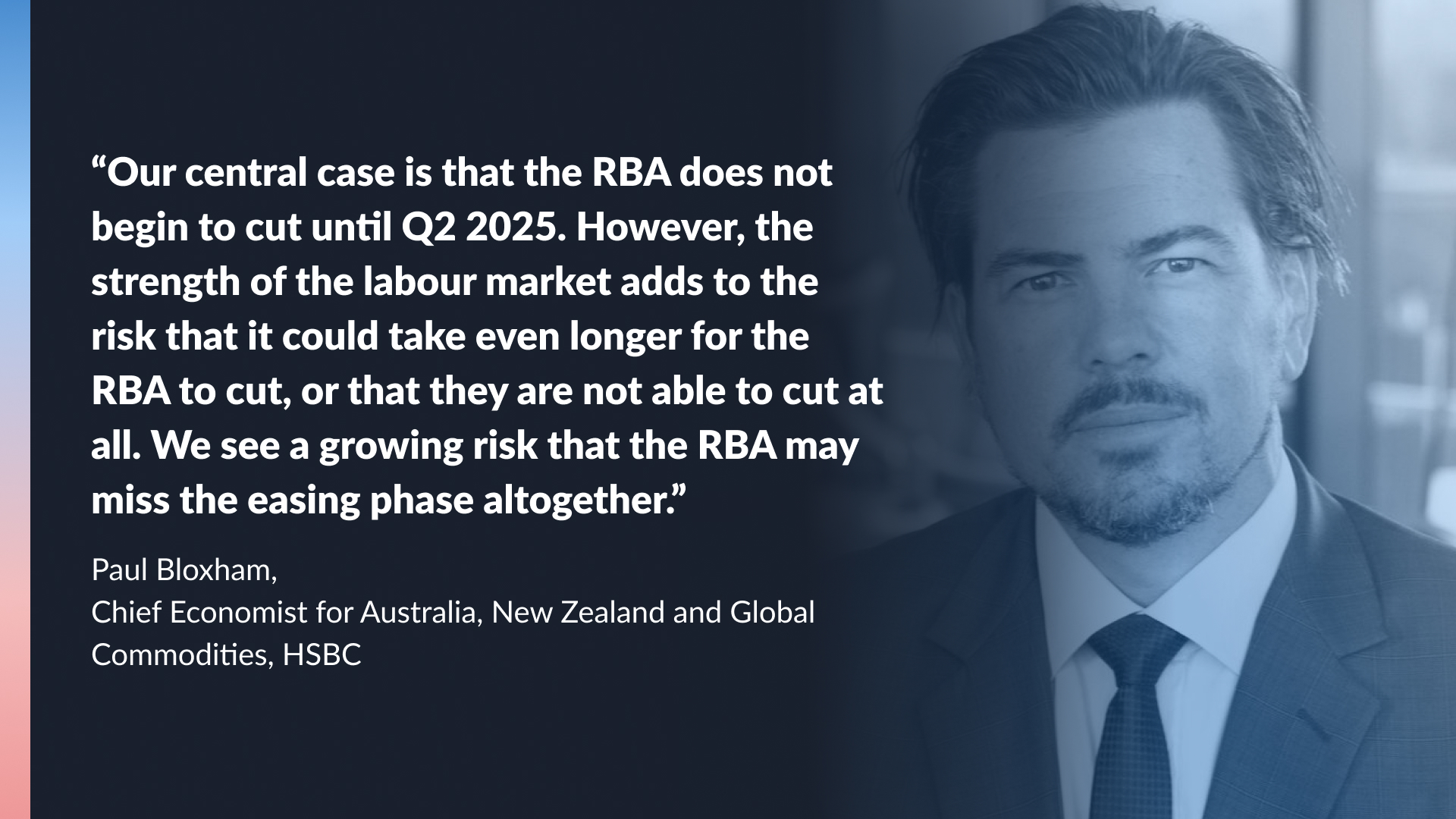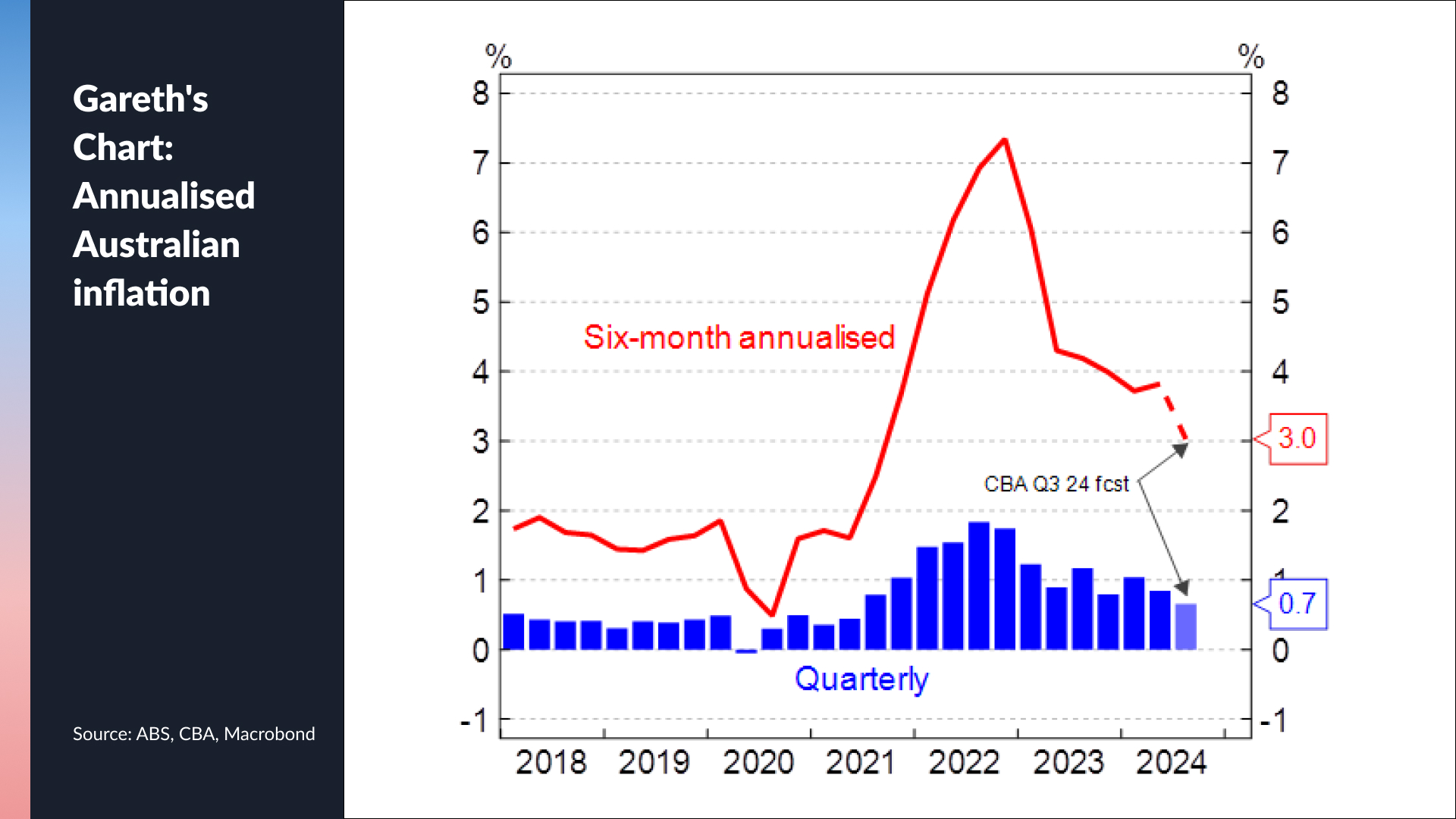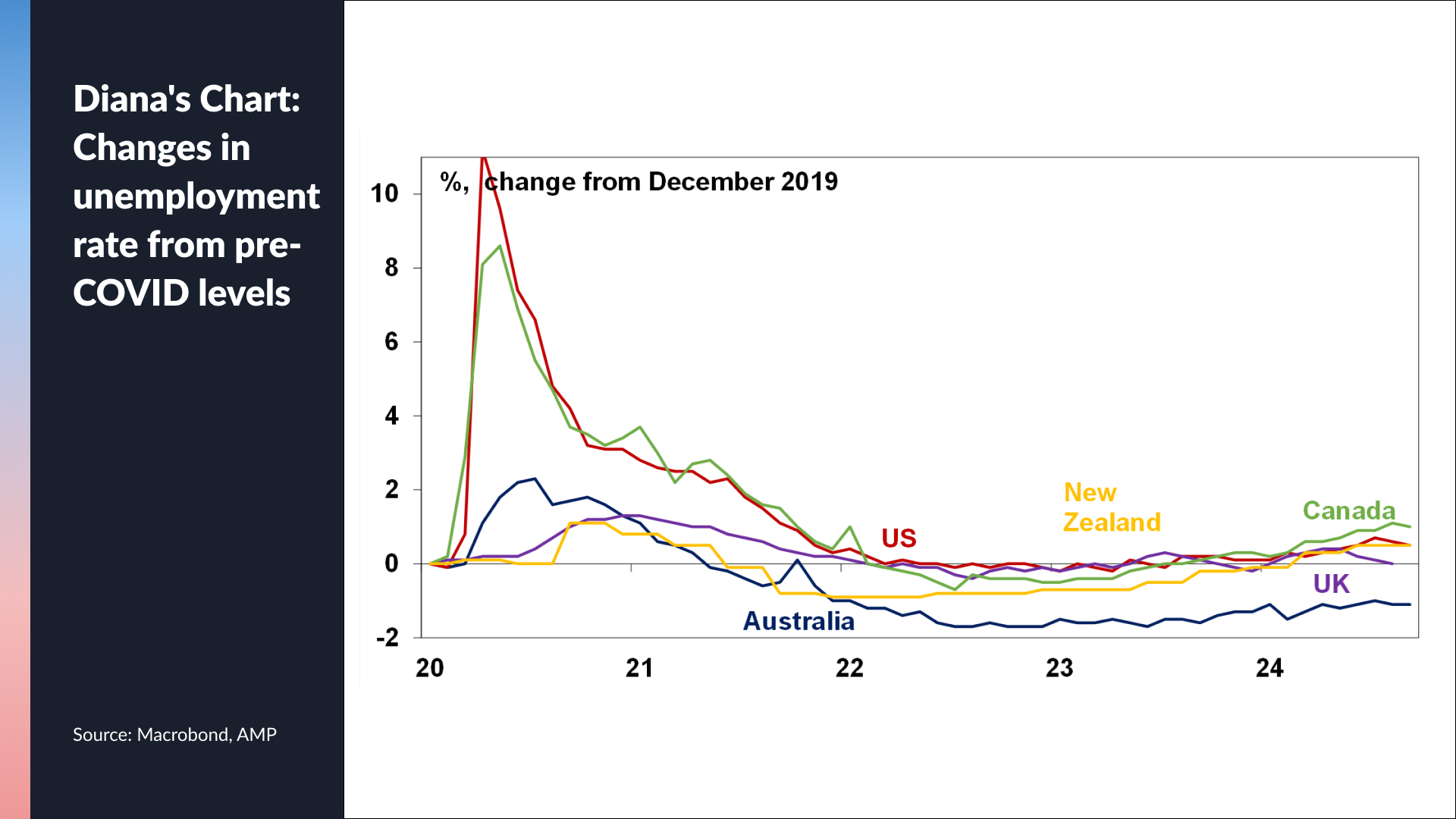Could the RBA not cut interest rates at all?
The prospect of the first interest rate cut for this cycle from the Reserve Bank of Australia continues to be pushed back. And while Moody's may argue that "hope is on the horizon", there is no denying that an ultra-tight labour market, in addition to an elongated disinflation process, has made the RBA's task a lot trickier.
This challenge was made all the more apparent last week when the September jobs report was released. The report revealed that the Australian economy added more than 64,000 jobs. Economists had forecast a gain of just 25,000 jobs. The unemployment rate also stayed steady at 4.1%, continuing both the most remarkable run for the economy and the biggest head-scratcher for forecasters.
At one extreme, some economists still believe inflation will come down fast enough for the RBA to cut rates this year. At the other extreme, the labour market's strength may cause the RBA to not cut interest rates at all. One person who has this view is Paul Bloxham, HSBC's chief economist in Australia. His full quote is below for you to read and reflect on:

So, does Bloxham have a point? Joining me for this month's episode of Signal or Noise are the aforementioned Gareth Aird, Head of Australian Economics at Commonwealth Bank and Diana Mousina, Deputy Chief Economist at AMP.
Note: This episode was taped on Wednesday 23 October 2024. You can watch the show, listen to our podcast, or read the edited summary below. Since this taping, Aird has withdrawn his call for a Q4 2024 interest rate cut, pushing it out to Q1 2025.
Other ways to listen:
EDITED SUMMARY
Topic 1: Markets hope for an early start to the RBA’s rate-cutting cycle
Both Diana and Gareth agreed that this week's Q3 Australian inflation report will likely prove to be the final difference between a pre-2025 RBA interest rate cut or a post-New Year's cut. But Gareth, who remains firmly in the pre-2025 cutting camp argues that there are extra reasons to believe the RBA can start to cut interest rates. These mainly emanate from a few forward-looking data signals:
- PMIs (purchasing managers indices)
- NAB Business Survey
- Melbourne Institute's monthly consumer sentiment survey, which tracks inflation expectations closely
Gareth's RBA call: A December 2024 RBA interest rate cut is (still) possible
While his conviction in this base call was reduced following the September labour market report, Gareth has held to a pre-2025 interest rate cut call for some time, even as his many industry compatriots caved in. But Gareth has held to this view not just because he believes inflation will come down significantly but also because Q3 GDP will likely come in softer than investors and the RBA are expecting given it's likely that consumer spending may not have increased even with the Stage 3 tax cuts.
Gareth's Chart: Inflation tracked in six-month rolling averages

Diana's RBA call: A Q1 2025 RBA interest rate cut is the base case - but it's not the timing that matters
Earlier in the year, Diana and the AMP team viewed it possible to see three rate cuts in 2024 but have since pushed this view out to Q1 2025. But rather than stick a firm time on the first rate cut, Diana argues that the exact timing matters less. Rather, it's more important that investors expect a rate cut coming within the next (roughly speaking) six months.
Diana's Chart: Unemployment compared to pre-COVID averages

Extended chat: Could the RBA not cut interest rates at all?
Diana finds it very difficult to concur with Paul's view given that every other major central bank is cutting rates. This is especially true because Australia's interest rate cuts had a much faster effect on households than it did in other parts of the world. In fact, mortgage rates in Australia surged more and real household disposable income growth declined faster during our interest rate hiking cycle than in all of our major peers combined. She thinks Paul's view may be inflation-centric but also argues that the forward indicators say otherwise.
Gareth adds two extra points. One, if the RBA were to not cut rates, that would imply the central bank believes we are at "neutral" (the short-term interest rate that would prevail when the economy is at full employment and stable inflation) and certainly not in "restrictive" territory. But the other, which he says is the caveat that could validate Paul's concerns, surrounds fiscal policy. If the government were to initiate another major cash splash ahead of the 2025 Federal Election, and the RBA had not cut interest rates yet, then the extra spending could prove to be a major risk.
Topic 2: Markets hope for more Chinese stimulus commitments
Gareth: NOISE - With no official announcements likely until the National People's Congress, Gareth considers this hope to be quite noisy. Such an announcement may not come until as late as after the US election result is confirmed.
Diana: SIGNAL - The share market's move off the back of this major stimulus commitment is the signal in and of itself. While the brokers will try and ascertain whether stimulus could be 5 or 6% of GDP, the truth is we don't know how much it will be until they say it and start deploying the money. For now, all we know is that there is potential for this to be the largest individual stimulus package since 2008.
If more stimulus is coming from the Chinese government, what should investors be doing to prepare for what’s next?
The answer is not necessarily to buy Chinese shares here, Diana says unless you've got a very healthy risk appetite and you have the time to watch the individual announcements closely. After all, many have tried to play fire with Chinese shares, and been burned in the process.
Topic 3: Markets continue to hope for a soft landing - despite geopolitical risks
Gareth: SIGNAL - Investor hopes here, Gareth says, are not misplaced. However, the trouble with this economic cycle is that a "soft" or "hard" landing will likely not be determined by inflation but rather by the labour market. Given the Australian job market has continued to remain tight (through a very low unemployment rate), you could say the soft landing is well on track here.
Diana: SIGNAL - The AMP team's forecasts are for GDP growth in Australia to improve from here, suggesting the soft landing theory has passed. Note this GDP growth will not be strong and will certainly not reach the 2-3% levels Australians have been used to. Finally, as always, soft and hard landings are aggregate terms. Different citizens working in different sectors and under different financial circumstances mean that "soft" and "hard" landings are truly an individual perspective in this economy.
Signal or Noise will return in early November with our annual Property Show. Joining Diana and I will be Andrew Schwartz of Qualitas and SQM Research's Louis Christopher.
4 topics
2 contributors mentioned

